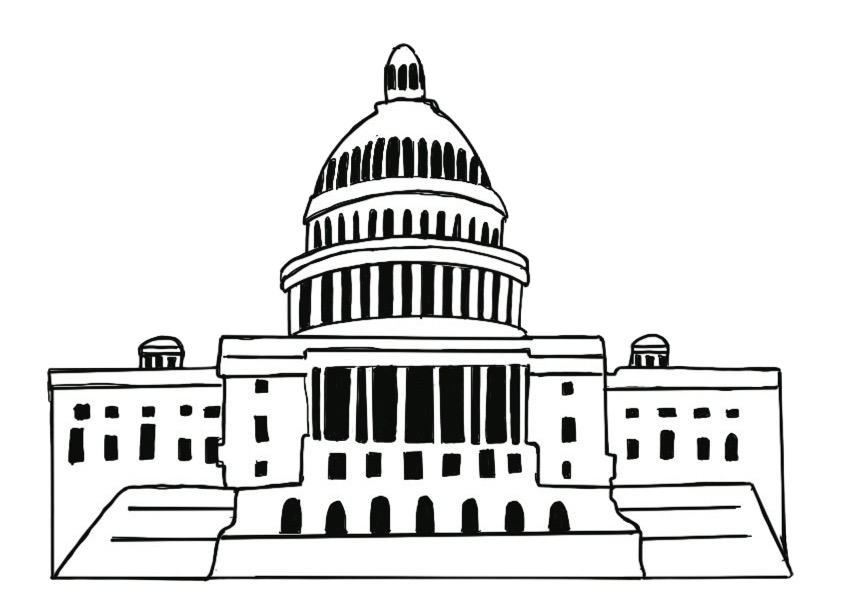Is Congress Great Again?
Each month, Gallup asks Americans whether or not they approve of the work Congress is doing. Each month, fewer than a quarter of them respond in the affirmative.
For nearly a decade and a half, Congress’ approval rating has been in the tank. The causes are myriad: a screeching halt to legislative activity, intense partisanship and an increasingly performative and governing class are just a few. In the last year, though, something curious has happened. On three major issues of national importance – infrastructure, guns and science and technology – Congress passed significant bipartisan legislation. And they may act on election reform and gay marriage before the year is over. For the first time in years, Congress is passing bipartisan bills supported by clear majorities of the American public. Is it a mirage? Or, beyond belief, have we made Congress great again?
The first sign of a changing wind in Congress came during the summer of 2021, as a group of ten moderate senators produced a compromise infrastructure proposal to spend $550 billion over ten years. For Democrats, it represented an opportunity to fulfill a key campaign promise and get President Biden his first legislative “win.” For Senate Republicans, the infrastructure deal was a particularly enticing way to prove that Congress could still do big, bipartisan things while the filibuster remained in place. The bill was exactly the sort you might expect Congress to pass with regularity – it enjoyed support from more than 60 percent of the public, including nearly half of Republicans, according to a Navigator Research poll. The bill passed the Senate with nearly 70 votes, then passed the House comfortably after progressives dropped their demand that the bill is attached to the President’s Build Back Better plan. It strengthened trust among moderates of both parties that even in today’s polarized age, there are still legislative deals to be had.
That trust proved important after mass shootings in Texas and New York during the spring of 2022. This time, an even smaller group of senators went to work to see where there could be bipartisan agreement on federal gun legislation. They came up with the Bipartisan Safer Communities Act, which expanded background checks to gun buyers under the age of 21 and enticed states to implement “red-flag” laws, which allow a court to temporarily take weapons away from those believed to be a threat to themselves or their community. The White House called it “the most significant gun safety law in 30 years.” It was yet another example of a changing Congress. Rather than take a big swing at a major new gun control bill and give up on any action at all when it failed (as happened after Sandy Hook), Democrats and Republicans agreed to limit the scope of the bill — to pass something that included everything they agreed on, and nothing else. It was Congress as it should work, and to many Americans, it was refreshing.
Finally, just a few months ago, a $250 billion package investing in American semiconductor manufacturing and broader scientific research and development passed the House and Senate with votes from both parties. For several years now, there has been an emerging bipartisan consensus about the need to be “tough” on China and prepare for a “new Cold War.” The CHIPS and Science Act, passed in August, was perhaps the first major legislation to reflect that consensus. Senator Todd Young, one of the lead Republican supporters of the bill, called it a “national security imperative” and hailed it as a major shift in U.S. strategy toward China.
Congress’ spate of bipartisan activity might not be over just yet, either. Lawmakers have hinted at acting on two major issues in the “lame duck” session of Congress before the end of this year. A bill legalizing gay marriage at the Federal level passed the House over the summer with significant Republican support, and there are indications that the bill may have the requisite ten Republican votes to break a Senate filibuster. Likewise, a bipartisan group of senators including Minority Leader Mitch McConnell is supporting a deal reforming the Electoral Count Act and making it more difficult for Congress to overturn the results of a presidential election.
There are important reasons to doubt whether Congress’ recent flurry of activity is sustainable, though. None of the three deals mentioned above went through the committee process – each of them was the product of a roving gang of senators teaming up on a particular issue. As senators come and go and political incentives change, it’s fair to question whether the bipartisan successes of this Congress can be replicated. And it’s important to consider the nature of these bipartisan agreements – the infrastructure deal and the CHIPS Act were essentially pure spending bills. Congress does little better than spending other people’s money. When it comes time to make the tough fiscal decisions our future requires, will compromise be so easy?
Congress has a long way to go – a few important bills cannot obfuscate the fact that real challenges lie ahead if it seeks to reclaim the bipartisanship and productivity of an earlier time. As an institution, Congress is still broken in significant ways. But for the first time in a decade, there is cause for hope. During this 117th Congress, serious legislators proved that they can still craft consensus policy on issues of importance to Americans.








